Hours after Hamas’ attack on Israel on October 7, 2023, as the Israeli government was readying for war, the Israeli tech sector was preparing for a war of its own.
Entitled Israel Tech Guard, the coalition of Israeli tech employees has pulled together what it’s termed an “army” of citizen volunteers primarily to defend Israel’s image online. The group has launched or collaborated on several projects aimed at targeting pro-Palestine content while boosting Israeli propaganda.
Israel Tech Guard comprises over 250 Israeli tech workers and was founded by entrepreneur Mor Ram-On, who worked for Israeli arms manufacturer Rafael Advanced Defense Systems; Ron Balter, a software engineer at Cybereason, a U.S. cybersecurity firm, and who served with the Israeli navy; and Lior Mizrahi, who heads the IT company Maveriks.
Given how new the non-profit is, financial statements for Israel Tech Guard have yet to be made available. However, the group was seeking $2 million in funding in November, and the Jerusalem Post reported that it’s backed by Elbit Systems, Israel’s largest arms manufacturer, which produces weapons for the Israeli military.
According to Israel Tech Guards’ LinkedIn profile, “[t]he group works in cooperation with the Israeli security agencies.” An archived version of the site states it also works with the Israeli military. For instance, one such project, “Anchoring the Draw,” was completed in December 2023 with Unit 9900, an Israeli military intelligence corps whose work is classified. Information on the project and its purpose hasn’t been released.
Israel Tech Guard has also collaborated with the Israeli National Information Directorate and the Ministry for Diaspora Affairs and Combating Antisemitism to launch Words of Iron on the day of Hamas’ October 2023 attack.
With Words of Iron, social media users are encouraged to amplify pro-Israel content by commenting with autogenerated text created by the website’s developers, as well as mass-report content deemed “anti-Israel.”
“[I]f every individual spends just 10 minutes a day utilizing this tool, sharing messages in unwavering support of Israel, our collective voice will resonate globally,” Israel Tech Guard wrote on LinkedIn announcing the project.
Targeting pro-Palestine activism
According to the Atlantic Council’s Digital Forensic Research Lab (DFRLab), the “words of iron” hashtag appeared in X posts more than 40,000 times, was used by more than 5,000 users, and reached more than 1 million users between October 10, 2023, to March 10, 2024. However, Words of Iron’s success was short-lived as its engagement dipped after October 13.
“Despite not having a lasting impact, Words of Iron represent an evolution in digital propaganda during wars showing a more advanced operation than previous efforts,” a DFRLab researcher, who wished to remain anonymous for security reasons, told MintPress News.
The tool’s engagement strategy targeted politicians, influencers, activists, and journalists. The top recipients of replies with the “Words of Iron” hashtag were United States Secretary of State Antony Blinken, European Commission President Ursula von der Leyen, U.S. President Joe Biden, U.S. Senator Marco Rubio, United Kingdom Home Secretary James Cleverly, German Chancellor Olaf Scholz, French President Emmanuel Macron, U.S. Senator Chuck Schumer, and U.K. Prime Minister Rishi Sunak.
The kind of content Words of Iron suggests users report ranges. Some posts contain false information or are antisemitic, but many posts are simply critical of Israel, Zionism or expressed solidarity with Palestine.
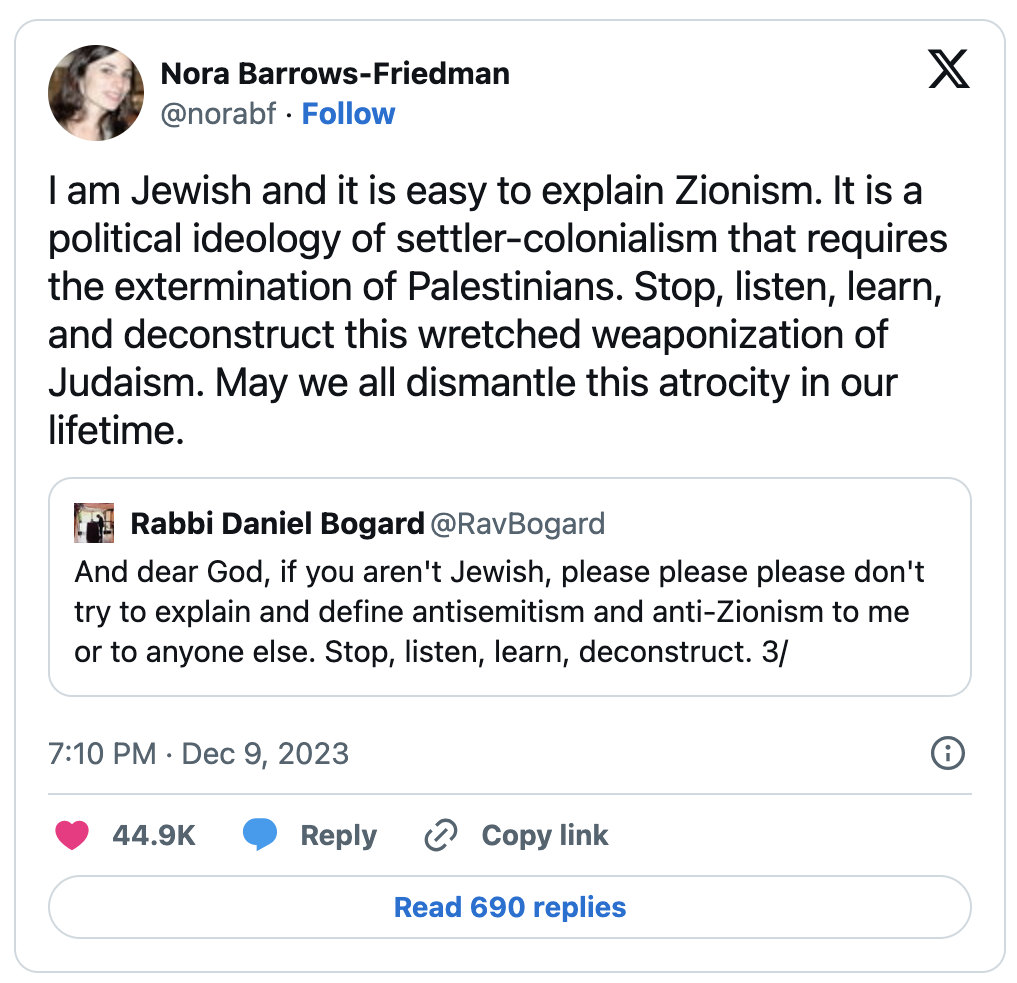
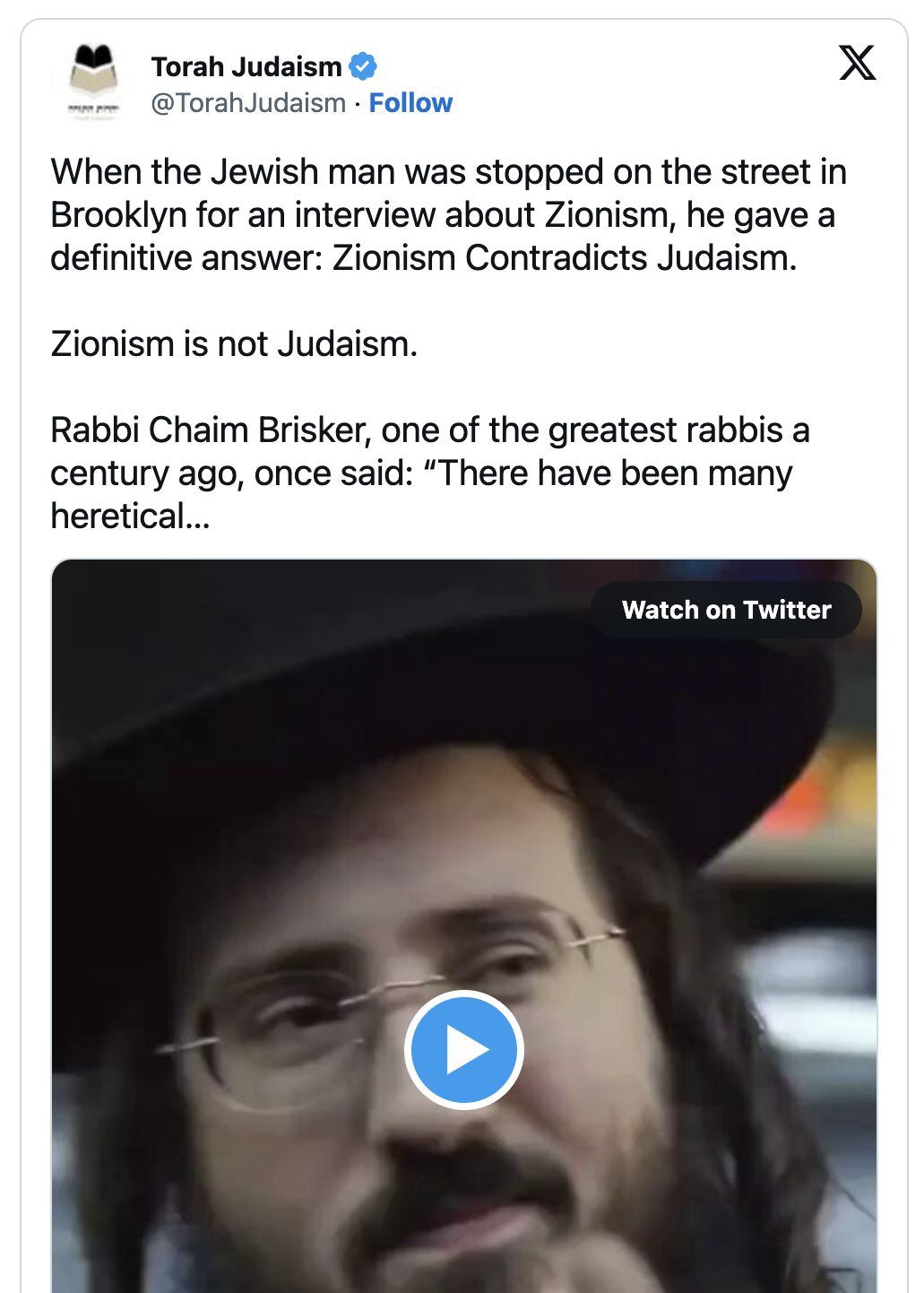

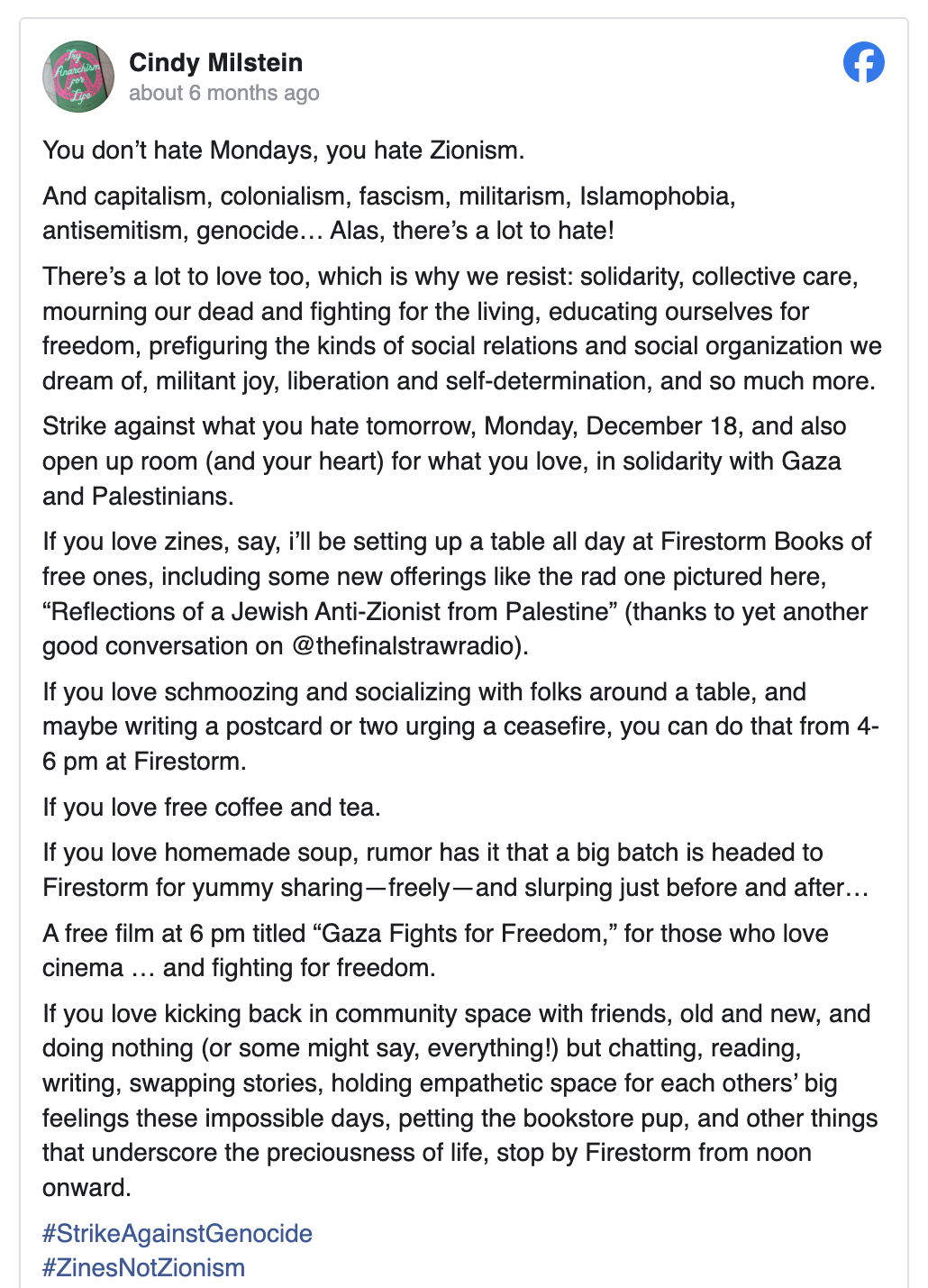
According to an analysis by DFRLAB, Words of Iron flagged posts from activist group Scottish Jews Against Zionism and Australian-Lebanese journalist Daizy Gedeon several times.
The Washington Post reported that the tool also encouraged users to flag a Christmas Day post from influencer and lawyer Rosy Pirani stating that Jesus was Palestinian. The post was then reported on Instagram, and now her content is not being recommended to non-followers. She has been banned from the Explore page and Reels tab and can no longer monetize her posts.
“It’s sad to see content that’s in no way antisemitic being reported,” Pirani told the Washington Post.
Sites like Words of Iron are scaring other content creators from posting about Palestine. They’re chilling free speech, and that’s what they aim to do.”
On the other hand, Words of Iron encourages users to boost posts from pro-Israel voices, such as StandWithUs, Stop Anti-Semitism, Yoseph Haddad, a pro-Israel Palestinian activist, controversial news aggregator Visegrad24, and Hillel Neuer, head of UN Watch, an Israel lobby group targeting the United Nations. Many of the posts attacked the UN Relief and Works Agency for Palestine Refugees in the Near East (UNRWA), which Israel has been actively campaigning to ban from operating on its territory.

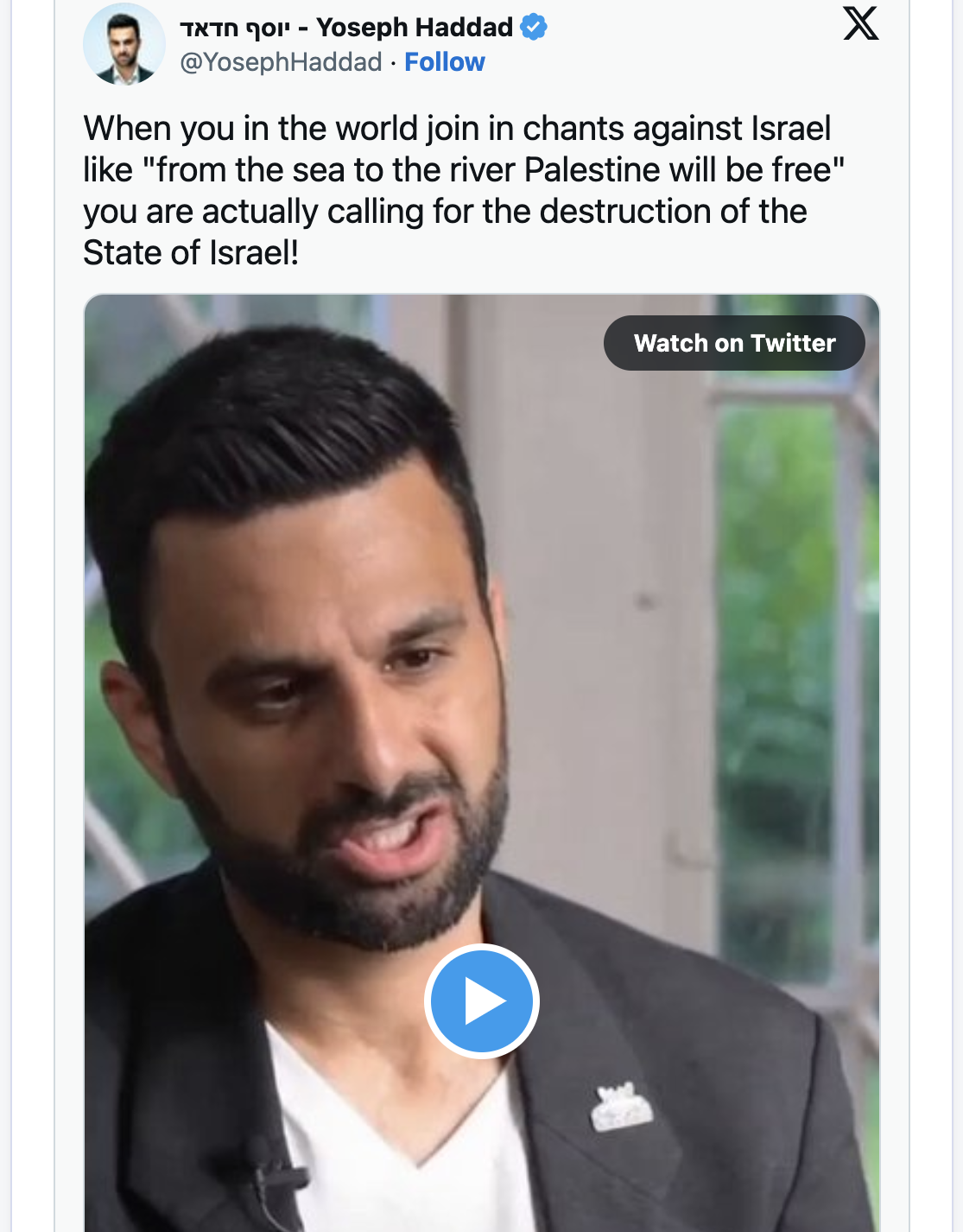
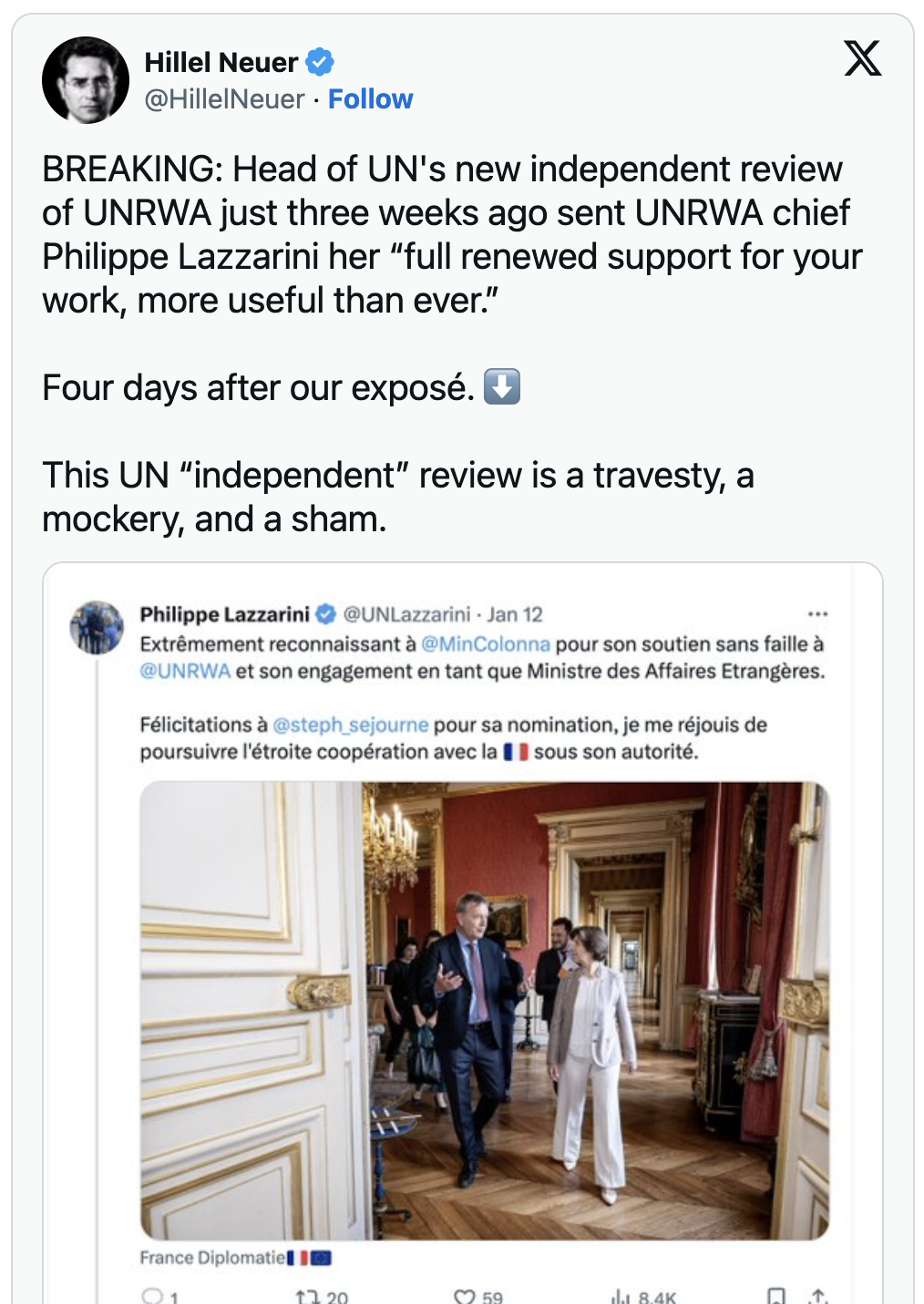
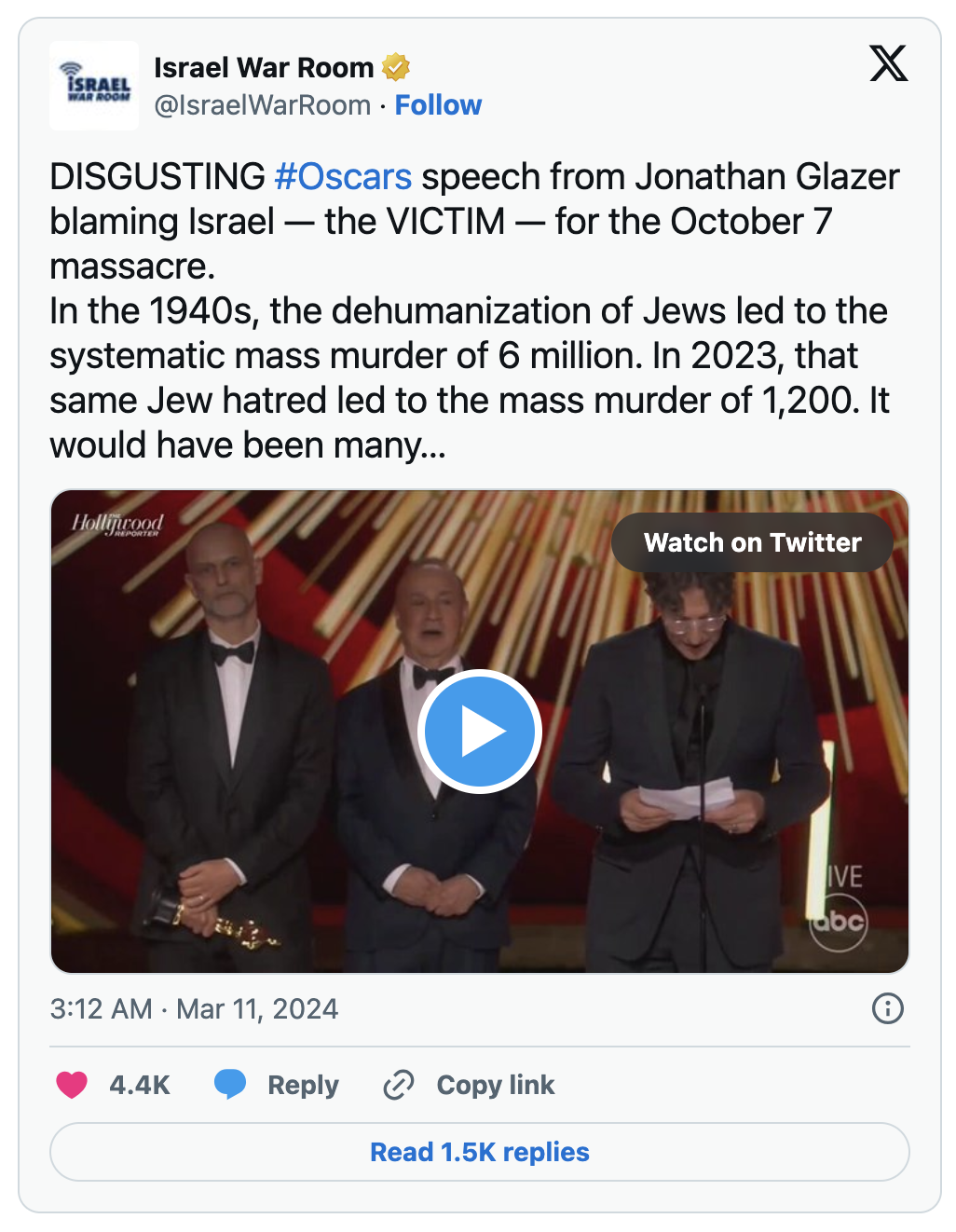
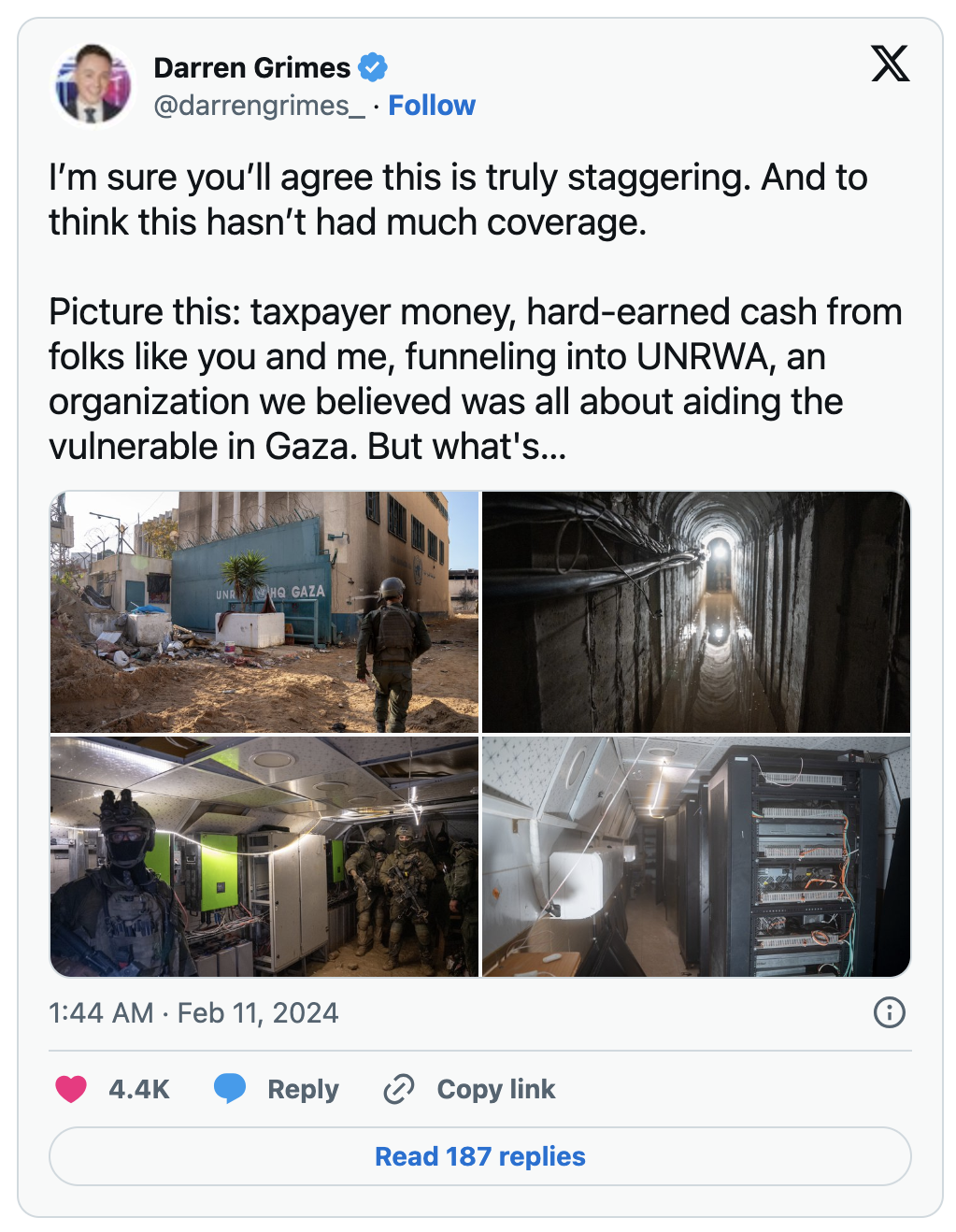

Additionally, the DFRLab found many suspicious X accounts linked to Words of Iron. Some accounts using the Words of Iron tool were created immediately after Hamas’ October 7 attack, while other profiles were dormant for years before renewing activity using Words of Iron.
“[T]he DFRLab identified at least two hundred accounts created after the October 7 attacks, some created minutes apart from each other, that amplified WOI messaging. More than thirty accounts were created on October 12, while more than twenty were established the following day,” the researchers wrote in their report on Words of Iron. “[M]ore than one hundred accounts did not have an avatar image and used alphanumeric handles at the time of reporting.”
DFRLab couldn’t verify whether these accounts were real or operated by governmental or other entities.
While Words of Iron is not the first online mechanism promoting Israeli propaganda, DFRLab notes that it is more sophisticated than previous technology.
“Words of Iron is more advanced in terms of its design and user interface, incorporating gamification and automation for example, and ability to generate endless content with specific targeting,” the DFRLab researcher said.
The researcher also emphasized that “the tool’s focus on boosting supportive messages from politicians and influencers on various social media platforms” is particularly noteworthy.
A web propaganda
Other projects partnering with Words of Iron include Veo Israel and OCT7. Veo Israel is a non-profit established to target Spanish-speaking audiences with pro-Israel audiovisual content. While Veo Israel’s current webpage doesn’t mention Words of Iron, an archived version of the site lists Words of Iron and OCT7, another pro-Israel digital warrior campaign.

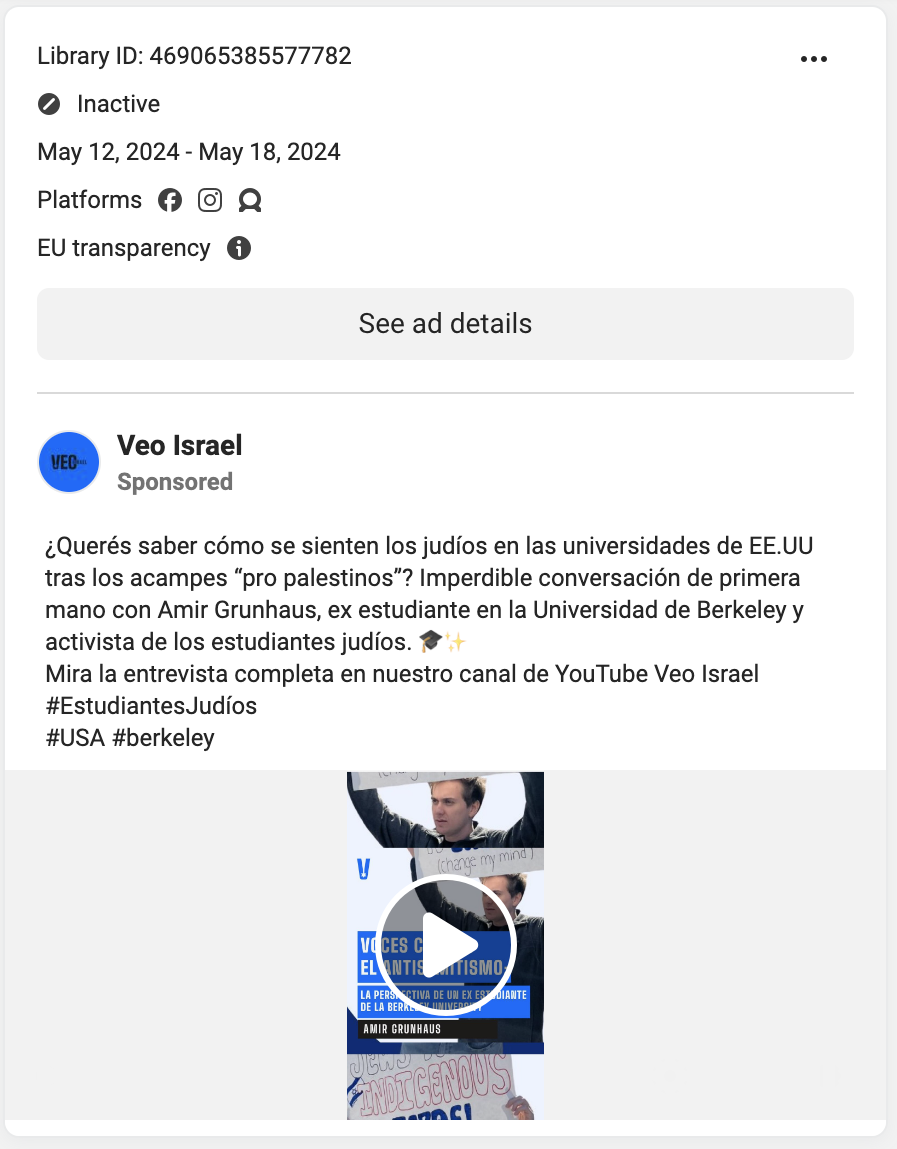



Veo Israel was founded by Rodrigo Gonzalez, a former soldier in the Israeli army’s Golani Brigade. The site purports to have a network of thousands of Spanish-speaking volunteers worldwide to assist with disseminating information. It is advertising on Facebook to fight against the “war in media” and “defend the reputation of Israel.” Some of the ads Veo Israel has run on Facebook include attacking UNRWA, the Gaza solidarity movement on college campuses, and a story about an Argentinian soldier who is fighting with the Israeli army in Gaza.
While Veo Israel’s online impact appears small—with only about 700 Facebook likes and Instagram posts rarely reaching 1,000 likes—the group has connected with politicians worldwide, including Santiago Abascal, leader of the Spanish VOX party, Chilean politician Antonio Kast, and Argentine President Javier Milei. It also received funding from Gabriel Colodro, head of the Spanish-speaking section of Israel’s Yesh Atid party.
Other apps similar to Words of Iron, like OCT7 and Moovers, are tied to the Israeli government. OCT7’s website lists the Israeli Ministry of Diaspora Affairs as a partner, and according to the Washington Post, Leaders, a Tel-Aviv-based marketing firm associated with Moovers, claimed it’s “endorsed by Israel’s Government Advertising Agency.”
Moovers grabbed international attention in December when a representative from Leaders contacted content creators offering to pay them to promote Moovers on their social media accounts. The app has also been accused of having pro-Palestine content removed.
A lot of people did not turn this offer down like Grace did. They are everywhere and you can tell because they use pre-written content and can’t engage beyond that. I continue to encourage you to block immediately. Can’t get paid if you don’t have access to people’s mentions pic.twitter.com/9Wy95CLCNn
— الكسندرا ميراي (@LexiAlex) December 10, 2023
NO wonder I’ve had old content removed or flagged without any notification or appeal process and it boots me out of Insta. Israel is creating dozens of sites that encourage ppl to “report” so called ‘random’ pro-palestine content on Instagram. https://t.co/3eS7Wz8pqn
Crazy all…
— AHMED | أحمد (@ASE) January 24, 2024
According to digital rights activists, censorship of pro-Palestine content on social media platforms is intensifying.
Palestinian social media activists continue to complain about bias by social media platforms as they face growing restrictions, with many contents being blocked or removed.#Gaza
— صدى سوشال – Sada Social (@SadaSocialPs) April 28, 2024
Palestinian digital rights group Sada Social found that nearly 40% of Palestinian media outlets and journalists encountered violations on social media between January 1, 2024, and April 30, 2024. The most common violations included post-deletion and reduced engagement.
Iron Truth is another Israeli-tech industry-manufactured bot that mobilizes netizens to mass-report content. The platform’s founder, Dani Kaganovitch, claims its connections with tech companies have led to the removal of roughly 1,000 posts across X, YouTube, and TikTok.
Kaganovitch’s post on LinkedIn announcing the project states:
The fight for public opinion has never been more important. Our enemy’s fake news and incitement machine doesn’t rest for a second. It’s time to win on all fronts, including this one. For that purpose, we created the “Iron Truth” Bot. Now all we need is YOU – stumbled upon fake news? Inciting posts? Support of Hamas’ Terrorism? Report it to the “Iron Truth” Bot, from which the content will be transferred for quick removal.
In addition to tech companies, Iron Truth is also linked to the Israeli government. According to The Intercept, Iron Truth managers met with the director of an unnamed Israeli government cyber unit. Inbar Bezek, an ex-Israeli parliament member, is also working with the app. OCT7 also lists Iron Truth as one of its partners.
Social Watch is another project by Israel Tech Guard. It uses an AI-powered bot to find social media content deemed “anti-Israeli” or antisemitic and report it to the platform as violating the site’s guidelines. Additionally, the bot notifies the post creator’s employer of the labeled violation.
“[W]e have developed a bot that identifies activists promoting propaganda in major global corporations and informs their employers about the violations committed,” the Social Watch webpage says.
According to Social Watch, the tool has reported 3,000 posts, of which 500 were then flagged, and 100 reports have been sent out thus far. While the tool only has a roughly 16% success rate in getting content flagged, Social Watch signals the increasingly McCarthyian-like tactics the Israel lobby is employing against pro-Palestine activists.
Moreover, whether these apps violate social media guidelines isn’t certain.
“It remains unclear if third-party apps like Words of Iron directly violate content moderation policies for social media platforms. Our research notes that some content moderation policies, such as the use of spam, could have been violated by individual users who used the tool,” the DFRLab researcher told MintPress News.
TikTok, Meta (which owns Facebook and Instagram), and YouTube were contacted for comment on whether these apps violate their content guidelines and if they’ve been responding to posts reported by these apps, but did not respond by the time of publication. X could not be reached.
Given a lack of governmental transparency, the level of government involvement in these campaigns is also difficult to determine. However, in November, Israeli media reported that the Diaspora Affairs Ministry would allocate NIS 10 million (over $2.6 million) to civil society organizations advocating for Israel and an undisclosed amount of money to organizations that use volunteers to advocate on behalf of Israel.
The ministry’s Director General said the ministry received a $500,000 donation from an unknown recipient for these projects. The ministry will also spend an additional NIS 9 million ($2.4 million) to distribute sponsored content around the world, with the Foreign Affairs Ministry investing NIS 5 million ($1.3 million) in this initiative and the National Information Directorate providing NIS 4 million ($1 million).
Despite the massive funds pumped into this pro-Israel troll army, it remains to be seen if they’ll win the so-called information war.
Feature photo | Illustration by MintPress News
Jessica Buxbaum is a Jerusalem-based journalist for MintPress News covering Palestine, Israel, and Syria. Her work has been featured in Middle East Eye, The New Arab and Gulf News.
The post Free Speech Under Fire: How Israel’s Tech Guard Is Killing Free Speech Online appeared first on MintPress News.

